Hedgehog bread
Using our current topic of ‘Life Forces’, we decided to theme this half-term’s cooking around it.
What could be nicer than a hedgehog bread roll?
These are a great way to introduce the children to the art of bread making. With this fun and easy starter recipe, these mini hedgehog rolls are the cutest bake we’ve ever made!

We have done a fair bit of cooking so far this year and the children are becoming very confident in all the skills needed. These include staying safe in the kitchen and the need for good hygiene. Year 4 were able to weigh and measure the ingredients, and then could follow the recipe well.
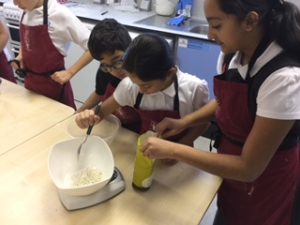
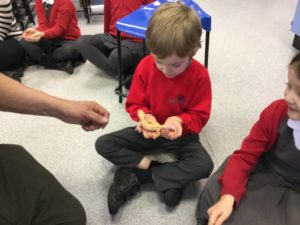
Next, came the hard part – kneading the dough!
Using their knuckles, the class worked hard to knead the dough for five minutes. There were a few aching arms after this!
We discussed that when making yeast bread, the kneaded dough has to have some rise time. During rising, the yeast ferments (‘eats’) the sugar and develops the dough. Rising also improves the flavour and texture of the bread.
After kneading, we rounded the dough into a ball and left to rise for an hour.
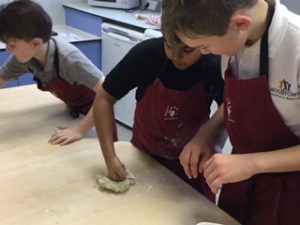


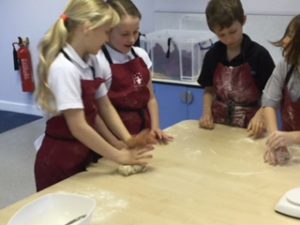
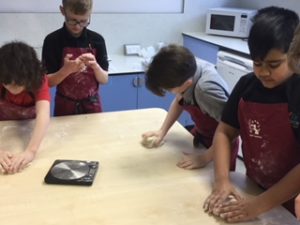
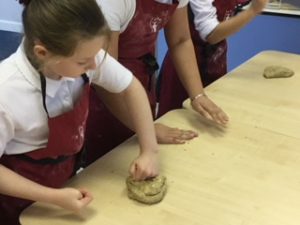
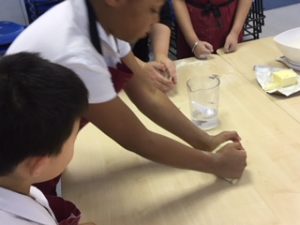
When the rising was complete, the children set to work on shaping their balls of dough into hedgehogs. Using a pair of scissors appeared to be the best way to create the spikes.
Finally, with two eyes and nose, the little hedgehogs were ready for the oven.

The finished product – healthy, fun and of course cute!
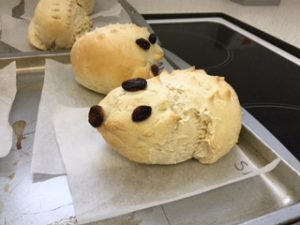
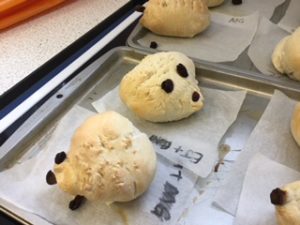
Finding all possibilities
Children used their problem-solving skills to sort the mixed up polar animals. They needed persistence and perseverance to find all the possibilities. By comparing similarities and differences, they realised that there was more than one way to sort.
This sort of activity is a great way to develop problem-solving skills. Encourage your child to sort and compare objects at home using different criteria such as colour, size and type.
Lovely homework for our class book on the body
As always, there was some fantastic Creative homework to enjoy in our homework review yesterday. We learnt lots from each other about various parts of the body and, because we all completed our work in homework books, we can now create our very information book from it.
Here’s a sneaky peak at a few pages:
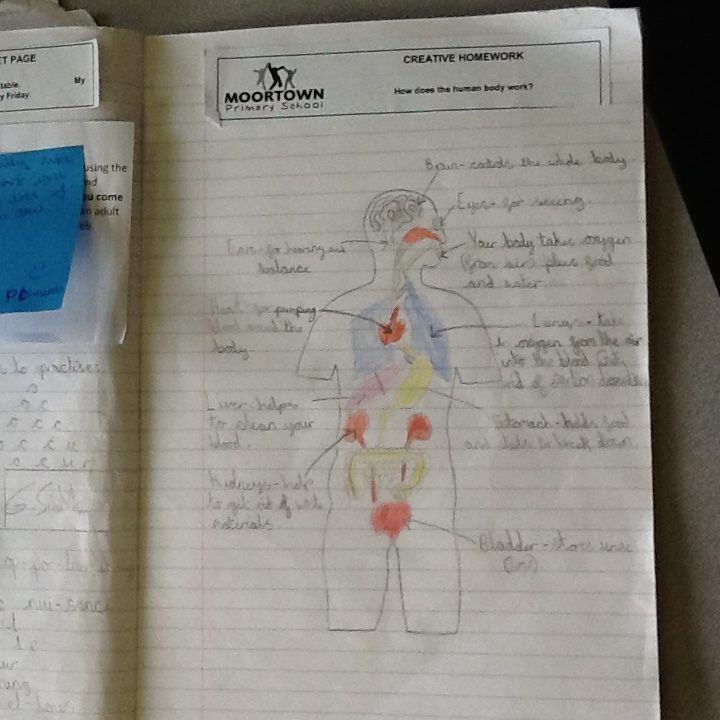
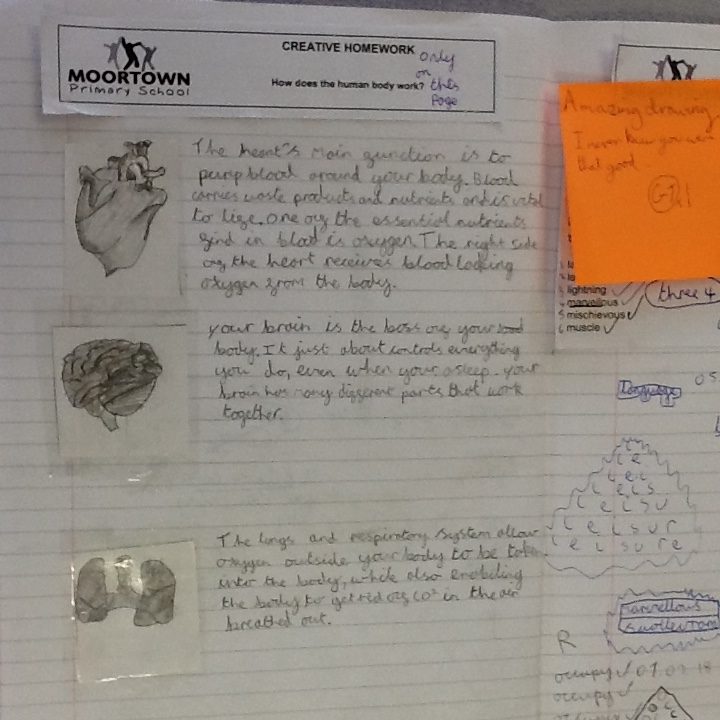
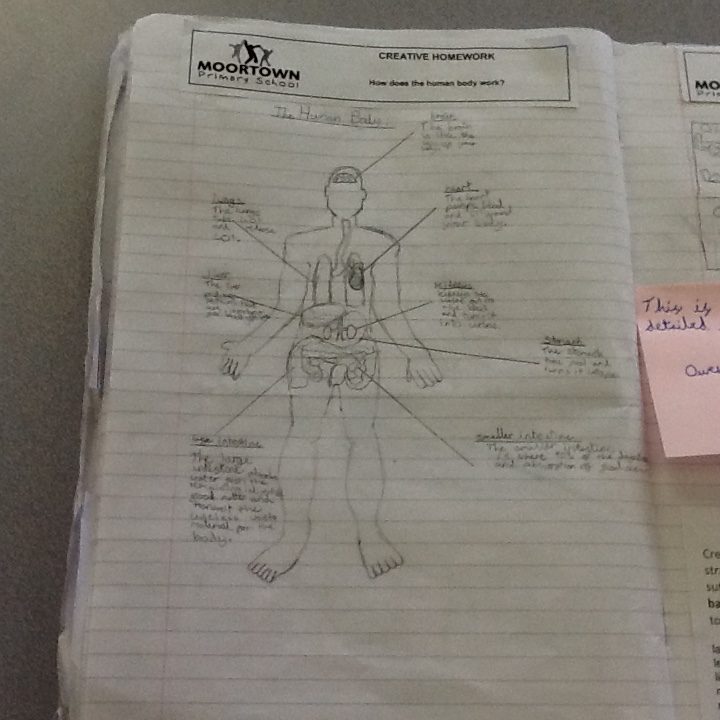
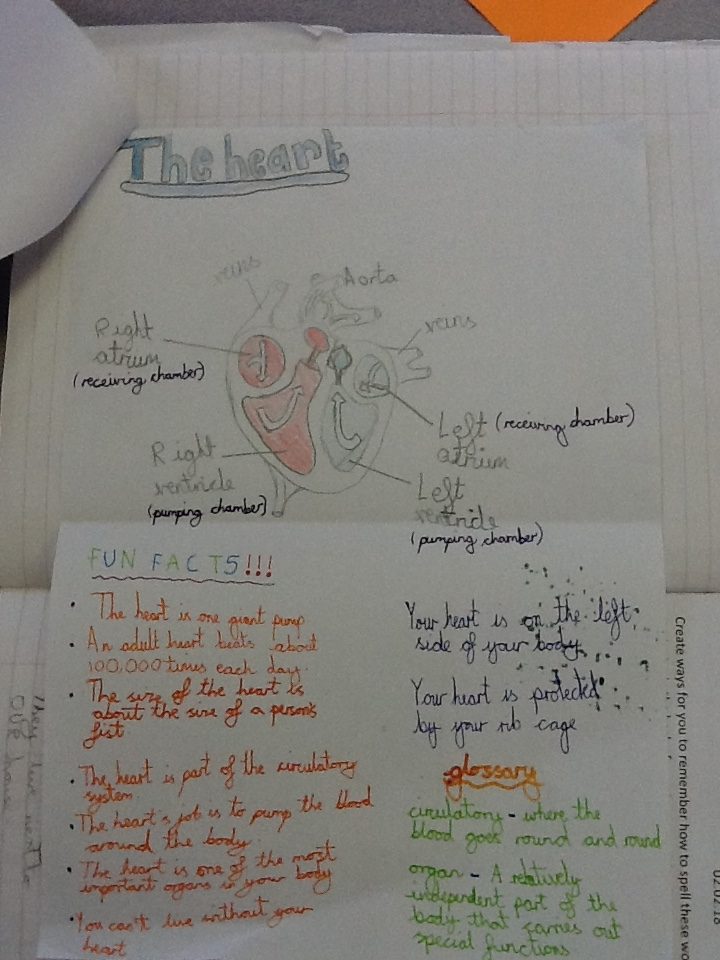
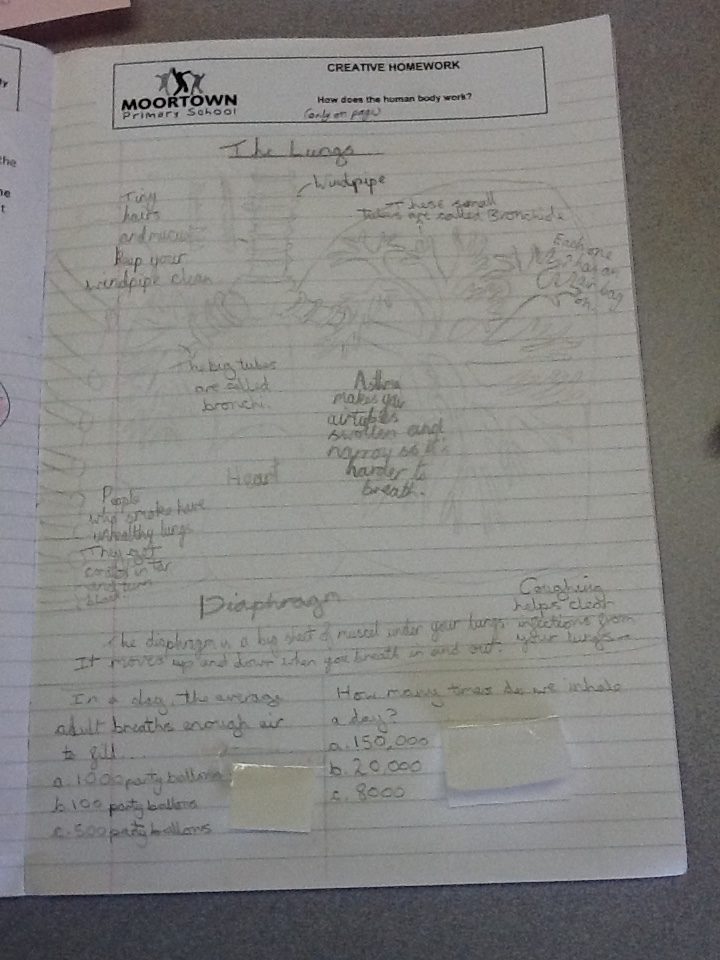
Living and Learning – Safety Online
In Year 4, we regularly chat and remind the children of the importance of staying safe online. This afternoon, we had a discussion about some of the potential issues that could arise when using technology.
We used this video to remind us of all the safety problems and how to solve them.

Another useful site is www.thinkuknow.co.uk.
There are age-appropriate activities on both these sites.
Ask your child are they SMART:

Living and Learning – D-Side E-Safety Sessions
Dave from D:Side joined our class last week to teach us all about internet safety. Year 1 showed a great understanding of how to be safe online.
When we talked about being online, Year 1 understood that they must not give out personal information and must tell an adult if they are unsure about something that comes onto the screen. We also discussed about not talking to strangers online as they might not be who they say they are.

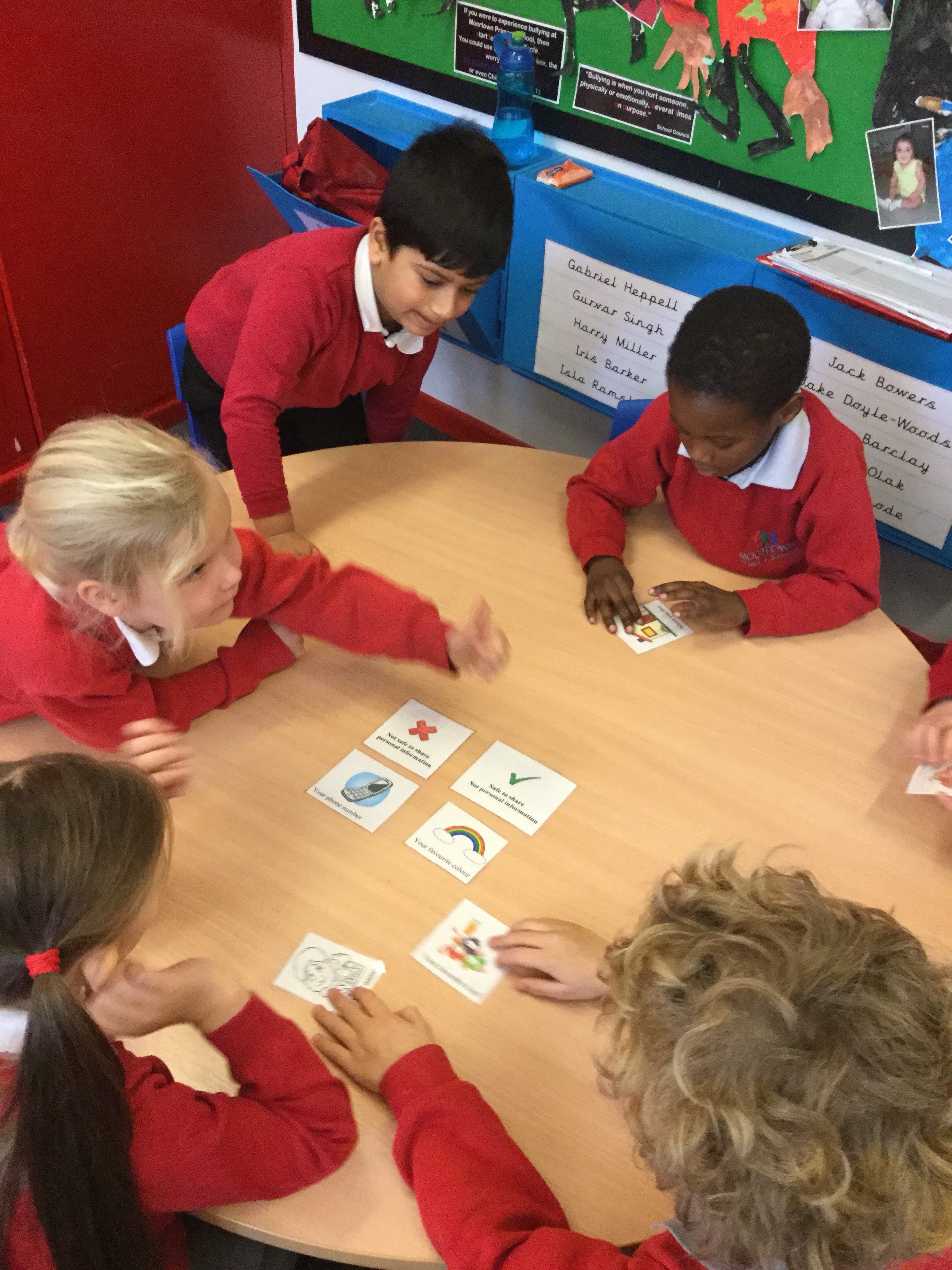
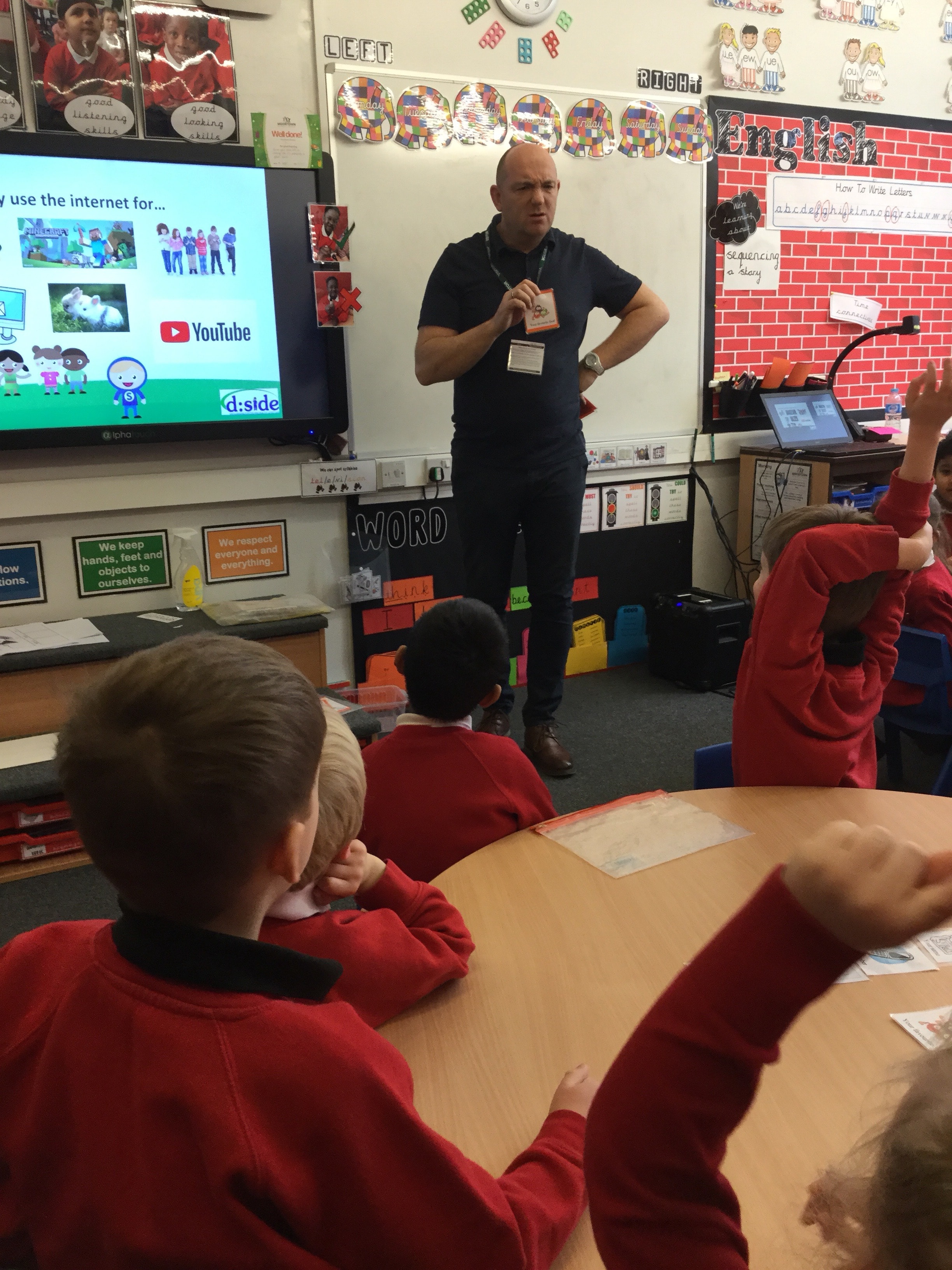
Science experts in Year 2
This afternoon, two medical students from the University of Leeds visited us to teach us about the human body.
It’s great having visitors in to class to talk to us but it’s also an important part of our science curriculum to use secondary research. We often do this in school by reading books and doing internet research but talking to experts is also a great way we can learn.


Living and Learning – I stay safe online
This week’s homework was Talk Time and generated brilliant discussion in class. It became obvious that everyone in Y3 had taken on board what has been spoken about and learnt in school and this was talked about in depth at home.
We collected the key points as a class:

Here’s an example of what this may look like in books. (Obviously it doesn’t have to be recorded like this but this was awesome!)
Living and Learning – D:Side Internet Safety
Last week, we were joined by Dave from D:Side who came in to teach us all about staying safe online. We had a great time learning about how to be safer online and, in general, Y5 were pretty savvy when it came to spotting risks online.
During the course of the session, many things stood out to me that I’d like to share with you as parents:
- 25/30 children in the class claimed to be using social media on a regular basis, using phones, iPads and home PCs (mainly, children are using Instagram, Snapchat and WhatsApp). The recommended minimum age for these sites is 13.
- Children who use Snapchat admitted that they follow lots of people that they don’t know.
- Similarly, on Snapchat, most children were unaware that Snapchat introduced a new technology called Snapmaps which allows other users to pinpoint your exact location. On the app, you must opt-out of this feature.
- Most children in the class thought that if you upload a picture online and then delete it, it’s deleted from the internet for good and nobody could ever see it again – this is not the case.
- When faced with a fictional scenario where someone has received four follower requests from complete strangers, only two children in the class said they would not accept any of them. That means 28/30 children were happy to become online friends with someone they did not know. The main reason children were happy to accept the requests were because these people were a similar age or had similar interests – if your child can lie about their age to set up their account, so can others.
- Many children are playing games online against people they don’t know and are striking up conversations with these people over headsets.
- There was a particular quote that stood out which many children agreed with: ‘The more followers you have, the cooler you look!’. Please do all you can to change this perception.
All of the above points apply to adults as well as children – please stress this to your child! It’s important that children are aware of this so that they don’t think they only need to be careful because they’re a child.
Living and Learning – staying safe online
On Tuesday, we learnt all about staying safe and being responsible online as part of National Internet Safety Day.
We were joined by a visitor from Splats who helped us create a short play about the evil Meanies and the robots. In the play, the Meanies were making the robots (or the people using the internet) say and do mean things. Eventually, the robots were able to pass on some kindness and defeat the Meanies. This scenario replicated being online and the negative things that could happen when we are using the internet.
In class, we watched a Newsround video about three people and the choices they made online. We discussed the importance of keeping passwords safe, not playing online too much and making sure we know who we are communicating with online.
Ask your child what they learnt during the day.
Here are some questions to consider during your discussion…
- Are they being responsible online?
- How do they know?
- How do you know?
- What should they do if they are ever unsure of something that happens when online?
- When/how often are they online?
- When online, what apps/games are they using? And, how safe are these?
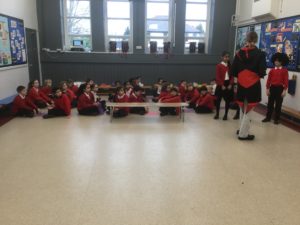
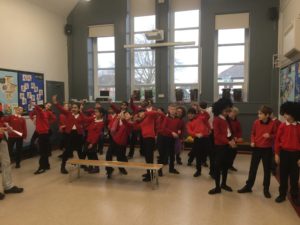
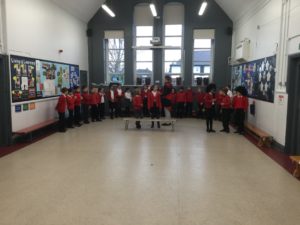
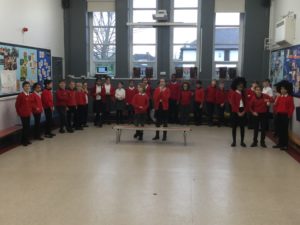
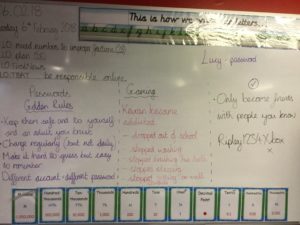
How often is your child reading at home?
Daily reading, ideally with an adult, is vital to become a better reader.
We’ve had a challenge this half term to see who can read the most at home. Children needed to read, and have their reading record book signed, to earn a star on the chart. For some children with longer books, this doesn’t have to be the whole book. You can also add any extra books that you’re reading at home – don’t forget non-fiction books (maybe to do with our Life Forces topic), poetry, comics, websites or newspapers!
Well done to the children who have already reached the target and have received their prize. We’ll continue to have the challenge next half term so keep reading!





